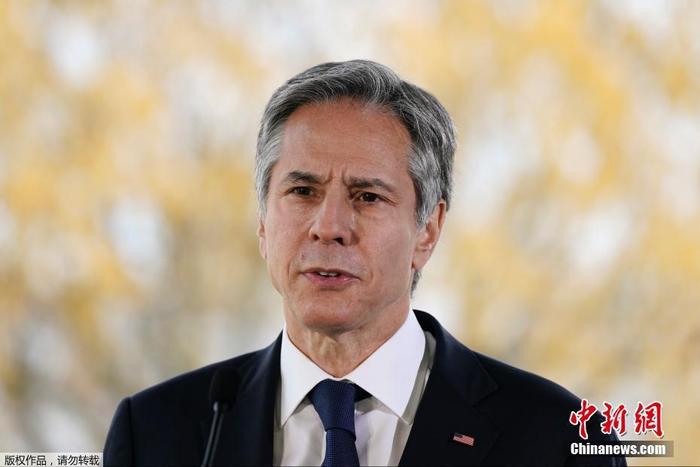China News Agency, Washington, May 26 (Reporter Sha Hanting) US Secretary of State Blinken said in a speech in Washington on the 26th local time that the United States does not seek conflict with China or a "new Cold War".
FILE PHOTO: U.S. Secretary of State Blinken.
Blinken delivered a speech on China policy at George Washington University on the same day.
He said that although the current conflict between Russia and Ukraine continues, for the United States, China is the "most serious challenge" in the long run, because China has the intention and ability to change the international order, including economic, diplomatic, military, technological etc.
Blinken emphasized that the United States does not seek conflict with China or a "new Cold War", and that the United States' position is to "resolutely avoid both."
The United States has no intention to prevent China or any country from playing the role of a great power, and the United States does not intend to hinder China's economic development, but the United States will defend international law, international treaties, international principles, etc., so that all countries can coexist and cooperate, including the United States and China.
Blinken said that the world is currently in a "critical period", and diplomacy is particularly important.
The United States will try to strengthen direct dialogue with China and establish a "strategic environment in line with the United States' vision" around China.
Blinken pointed out that the Biden administration's policies can be summed up as "invest, unite, compete."
First, the United States will increase investment in its own country, including infrastructure, supply chain, education, scientific research, etc., to ensure its own competitiveness.
Second, unite allies, strengthen cooperation, and achieve common goals, including the recently launched "Indo-Pacific Economic Framework" and cooperation with European allies and NATO.
Third, with capital investment and the support of allies, the United States will compete with China in many fields, including the economy, science and technology.
Regarding the Taiwan issue, Blinken said that the United States still adheres to the one-China principle and does not support "Taiwan independence".
The United States will continue to expand cooperation with Taiwan and deepen economic ties with Taiwan in line with the one-China principle.
Blinken said that competition does not mean that it will lead to conflict. The United States does not seek conflict, but in the face of any threat, the United States will safeguard its own interests.
At the same time, the United States will also seek cooperation with China in areas of "common interest", including tackling climate change, combating the new crown epidemic, preventing nuclear proliferation, and combating illegal narcotics.
Blinken emphasized that as the two largest economies in the world, the United States and China, the world hopes that the United States and China can cooperate to meet challenges, which is also in the interests of the two countries.
"There is no reason why the United States and China cannot coexist peacefully. The United States and China can jointly contribute to the progress of mankind."
Blinken's speech that day was originally scheduled to be held on May 5, but was postponed after Blinken contracted the new crown virus.
(Finish)

